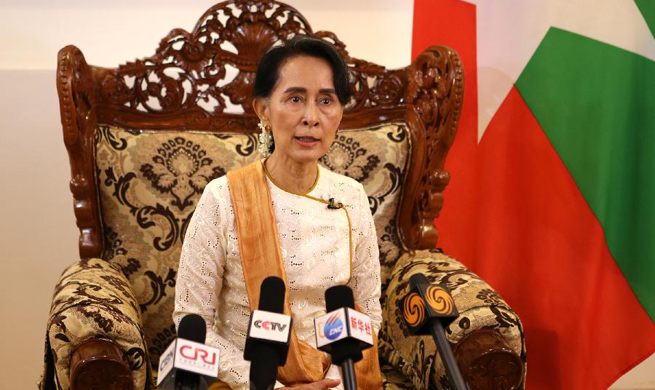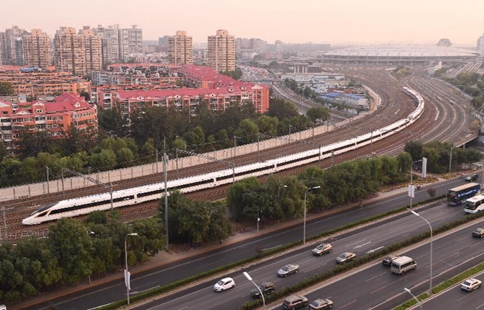BERLIN, Sept. 23 (Xinhua) -- The once-in-four-year German federal election will be held on Sunday, which will decide the proportion of the seats in the Bundestag, or the Federal Parliament, and thus decide the formation of the new government.
Based on a slightly modified proportional representation, election in Germany is different from that of the United States or France.
Each voter has two votes, the first of which is for a candidate in his or her constituency, and the second for a state list of candidates put up by a particular party.
The first vote allows a elector to vote for a direct candidate of their constituency, who applies for a direct mandate in the Bundestag. As there are 299 constituencies at the moment, the same number of mandates in the Bundestag are distributed to the elected candidates in each constituency.
This division changes nothing with regard to the key role of the parties in the electoral system, because only those candidates who belong to a party have any chance of success.
The second vote goes to a party instead of a single candidate, and thus determines the percentage each party gets in the Bundestag, so it is more important than the first vote.
Sometimes a party will receive more seats through the first vote than they deserve according to the party vote. Since each candidate who wins a constituency is guaranteed a seat, the party get to maintain those "overhang" seats.
Other parties then also get more seats to make up for this, ultimately making the parliament larger than its base number of 598 seats. Now the incumbent Bundestag have a total of 630 seats.
However, the second votes of a party are counted only if they have won at least five percent of all second votes or three constituencies directly over the votes. If this is not the case, the second votes are invalid.
Approximately over 61 million voters are eligible for the federal election on Sunday. In principle, all Germans who are 18 years old and above on the election day can participate. Most of the voters live in North Rhine-Westphalia (13.1 million) and the least in Saarland (800,000).
The new Bundestag must convene within one month to discuss the formation of the government.
German electoral system makes it very difficult for any one party to form a government on its own. Therefore, an alliance of parties is the general rule.
When parties agree to form a coalition that holds majority seats in the Bundestag, they nominate a candidate for chancellery and will be approved in the new Bundestag, and a new government will be formed.
















